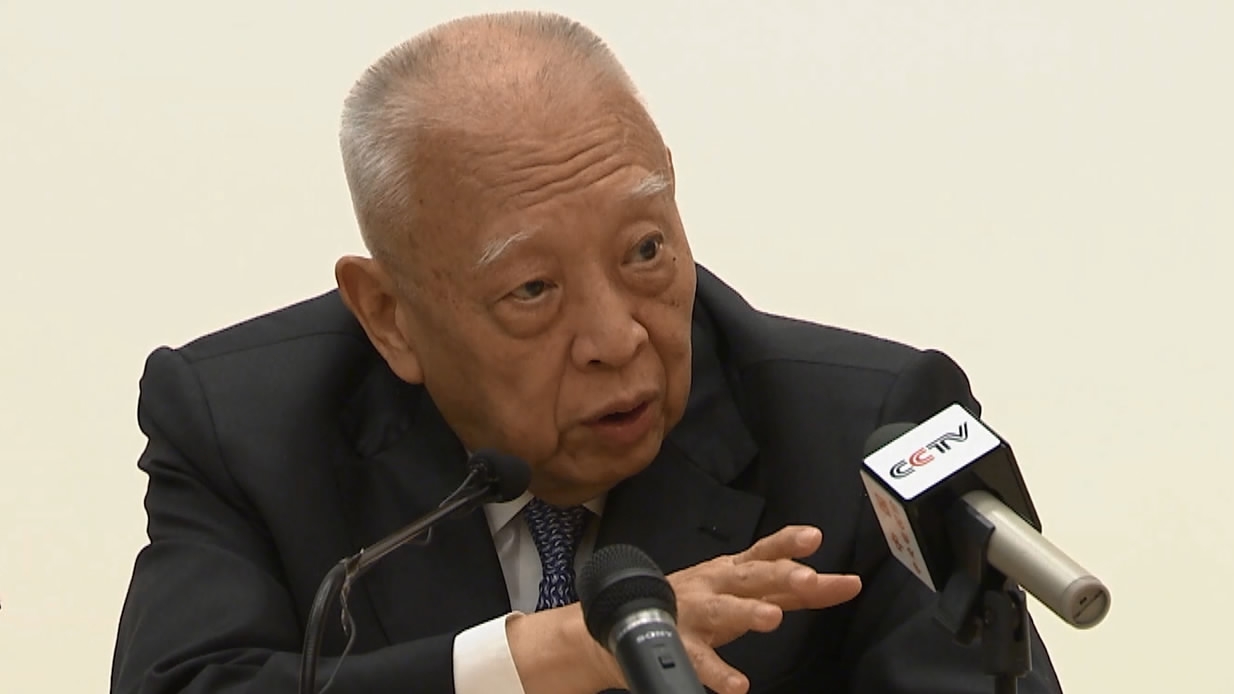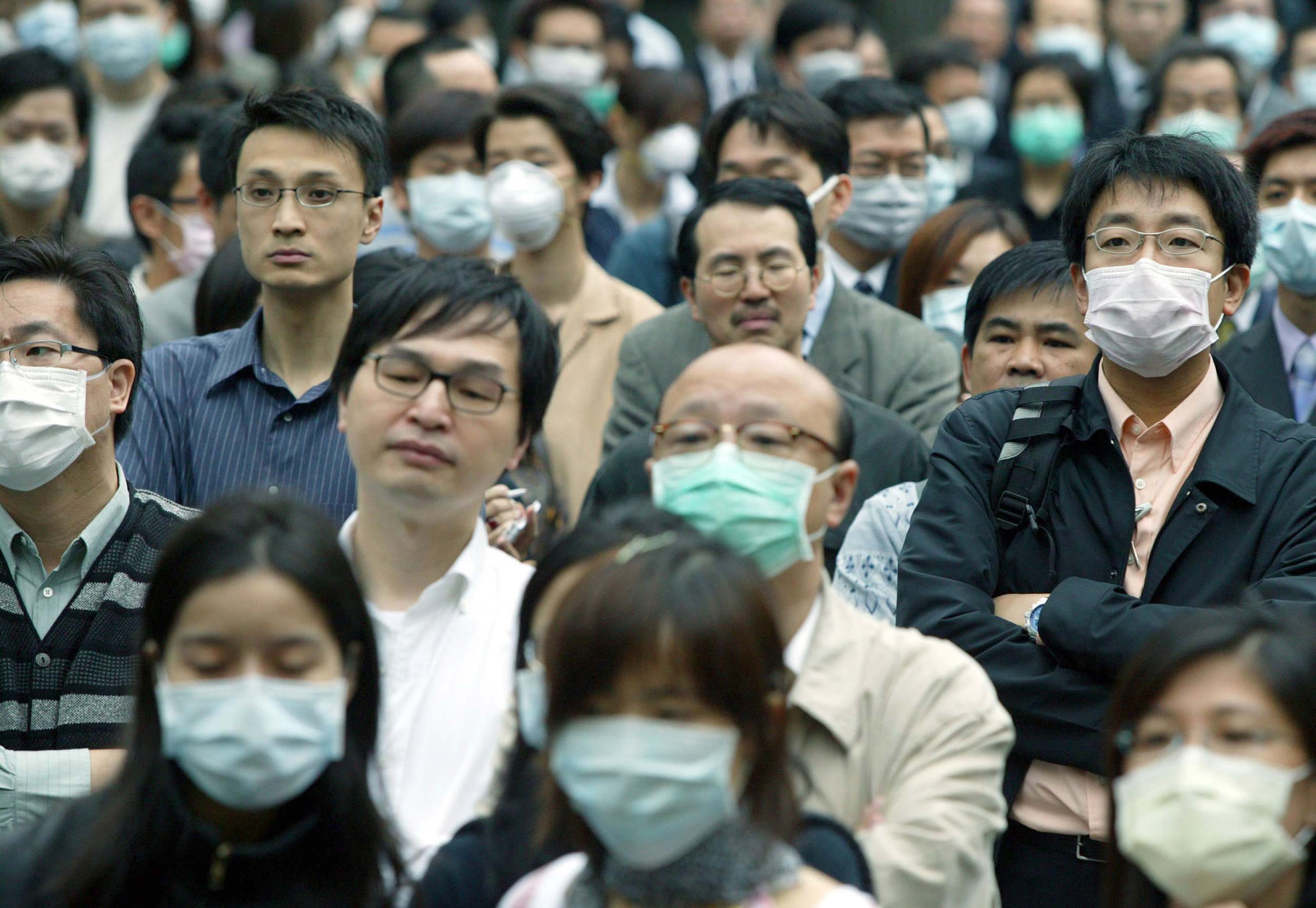
Politics
09:30, 21-Jun-2017
First Hong Kong Chief Executive Tung Chee-hwa on the city’s ups and downs

For Tung Chee-hwa, his most unforgettable moment was watching the Union Jack being lowered, and the five-star national flag raised on the day of Hong Kong's return to the motherland. The former chief executive of Hong Kong Special Administrative Region (HKSAR) recalled his most memorable moments over the past two decades, in a recent interview with CGTN.
"A 60-year old who took part in the handover ceremony will never forget such an exciting and touching moment," said Tung, adding that back then he was aware of the huge responsibilities of being chief executive, as the “One Country, Two Systems” cause could not fail.
Tung, 80, is currently the vice-chairman of the National Committee of the Chinese People's Political Consultative Conference (CPPCC). He was sworn in as Hong Kong’s first post-1997 leader on July 1, 1997, and resigned from the post as chief executive in March 2005 for health reasons.
Looking back at Tung's nearly eight-year tenure, Hong Kong experienced cloudy dark skies and even lightning, but eventually the red rim of the sun was able to emerge between the clouds.
Battling currency speculators

VCG Photo
VCG Photo
The Asian financial crisis started on July 2, 1997, the day after the 1997 handover ceremony, when the Thai government announced that they would allow the baht to float freely against the dollar.
The baht immediately lost 18 percent of its value, and started a slide. For the previous 13 years the Thai baht had been pegged to the US dollar.
Following the devaluation of the Thai baht, wave after wave of speculation hit other Asian countries, and one after another the currencies of Malaysia, Indonesia and Singapore were all marked sharply lower in the space of just a few weeks.
As Tung recalled, at the beginning they could not evaluate how severe the situation would become, and did not expect that the financial crisis would spread that quickly.
Featuring an open economic structure, Hong Kong pegged its currency to the US dollar, which made the currency vulnerable to speculation.
Interest rates in Hong Kong hiked in October 1997, as forex traders switched from Hong Kong dollars and into US dollars.
By August 1998, international speculators tried to break the linked exchange rate system in Hong Kong, because they could make profits from favorable fluctuations in exchange rates.
Speculators also unexpectedly sold off Hong Kong stocks, triggering a collapse in the stock market.
"After we were able to see straight, we chose to fight back, to confront them directly by buying back what they sold, and it turned out that we won," said Tung.
Hong Kong was able to maintain the value of its currency against the US dollar, despite several concerted speculative attacks.
Battling the SARS

People wear masks to protect themselves against the Severe Acute Respiratory Syndrome (SARS) virus April 16, 2003 in Hong Kong. /VCG Photo
People wear masks to protect themselves against the Severe Acute Respiratory Syndrome (SARS) virus April 16, 2003 in Hong Kong. /VCG Photo
After the SARS epidemic broke out in the spring of 2003, Hong Kong went through a painful period.
Tung said, as the local leader, the hardest time for him was when the number of deaths came in every day, and he was extremely worried about the situation. Over 300 people died of SARS in Hong Kong.
He added that the country's strong support made it easier for Hong Kong to deal with such problems in hard times.
"I will always remember that, after the SARS outbreak in 2003, then President Hu Jintao asked me to meet him in Shenzhen in April. He wanted me to talk about my experiences about handling the situation, and he shared his," said Tung.
"He also asked me, 'Do you have any requirements?' I answered, 'Yes, I have a lot.' "
Back then, Hong Kong was short of medical supplies, such as hospital gowns and face masks.
Three days later, the supplies were all sent to Hong Kong. "We were much moved and all personally felt the care and concern from the motherland," noted Tung.
On June 23, 2003, The World Health Organization declared Hong Kong free of SARS after it went 20 days without a new case, signaling an end to one of the worst crises the territory has ever faced.
1969km

SITEMAP
Copyright © 2018 CGTN. Beijing ICP prepared NO.16065310-3
Copyright © 2018 CGTN. Beijing ICP prepared NO.16065310-3